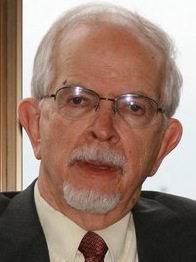Rather, as viewed from a Christian perspective, it embodies the faith of a people, who began with Abraham in their quest for God and who believe that they find God in Jesus Christ. We share with the deepest possible empathy the feeling the people of Israel have for the land they now occupy between the Jordan River and the Mediterranean Sea.
President Jimmy Carter, who learned his Middle East geography in a Southern Baptist Sunday school class, shares that empathy. But as President of the United States, and as a world leader, he dares not utilize religious texts for pluralistic secular solutions.
The American Jewish community is understandably anxious over the welfare of Israel. But its present campaign -- through the so-called Jewish lobby -- to influence Congress and the president to settle into a rigidly pro-Israel position before the convening of the Geneva Conference will, in the long run, be contrary to the best interests of both the State of Israel and American Jews.
The number of evangelical Christians who have empathy for Israel is large, but the number who would want to see political differences settled via biblical citations is relatively small. There is, therefore, no long-range political advantage to be gained by an effort to wrap Israel's security in a blanket of evangelical biblical literalism.
With a Southern Baptist layman as president, the American Jewish community has a better friend in the White House than it apparently realizes. U.S. supporters of Israel generally assume that the State Department "tilts" toward a pro-Arab bias.
This is a familiar charge, often leveled at the National Council of Churches and the World Council of Churches.
There is truth in these allegations, in part because Middle East experience among Christians and among State Department staff members has involved exposure to Arab as well as to the current Israeli nation.
But the understandable anxiety of American Jews over the future of Israel -- especially when they hear of rocket attacks by terrorists against villages in northern Israel (and of Israel's massive retaliation) -- should not lead American Jews to think that unceasing pressure against the president, the Congress and public opinion in this country represents the best means of ensuring Israel's future security.
Only a negotiated settlement involving all parties in the Middle East will produce the peace we seek. American Jews are going to argue their case in every possible forum of decision-making.
But we would caution them to remember the important distinction between the strong empathy Christians feel with Israel and the realistic awareness that political decision-making must be shaped by political and not religious guidelines.
Biblical prophecy anticipates a future of hope for humankind; it does not, however, provide an atlas for establishing the geographical boundaries of the countries that seek that hope."
Jump forward 35 years to March, 2012.
Thanks to the information flow from Palestine/Israel, Americans have been introduced to the Nakba, walls erected within more walls, administrative detention, house demolitions, check points, to name only a few results of Israel's military Occupation.
Israeli settlements built illegally in the West Bank, housed 10,000 Jewish settlers in 1977. In 2012 that total now approaches 500,000 settlers.
In 2012, Israel's hasbara (propaganda) operation reaches deep into American society, shaping the perspective of media and political leaders where money determines allegiance.
Hasbara has even reached deep into American religious communities, where it is not money that talks, but the ever-reliable religious sense of guilt (the Holocaust) plus the deep commitment to inter-faith dialogue between Jews and Christians, a dialogue that extends neither to Muslims nor liberal Jews.
(Note: You can view every article as one long page if you sign up as an Advocate Member, or higher).





